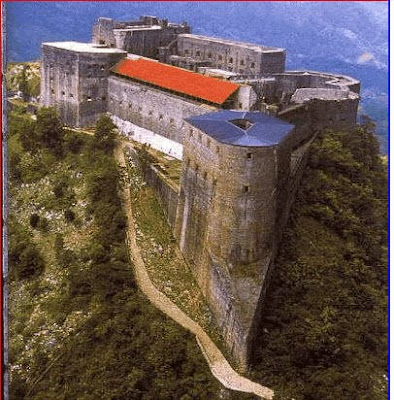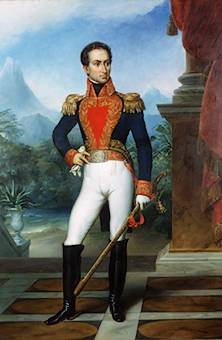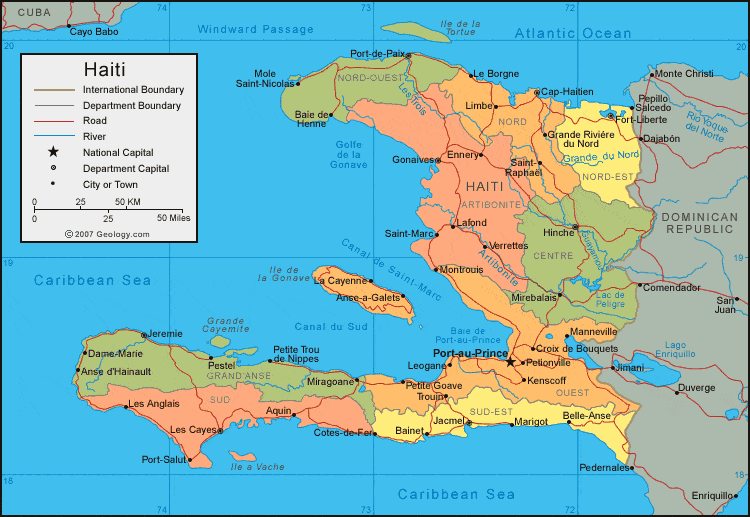Background
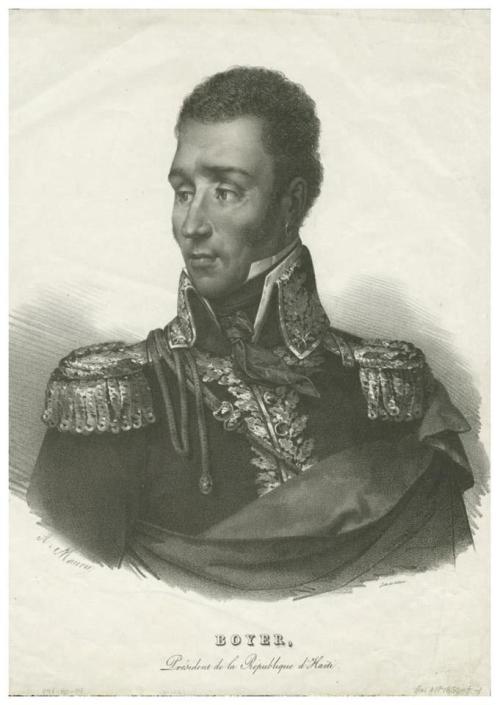
Background:
Haiti in 1825 was a young isolated nation. It just fought a bloody war of freedom 20 years earlier. Now the new leader Jean-Pierre Boyer was living in fear of France coming back. So, Boyer started “negotiations” for France to agree to recognize Haiti unless it paid 150 million Francs. King Charles X of France also sent 14 warships off the coast of Haiti with 500 guns to send a message to Boyer that if the negotiations fail it would lead to a new war. However, Boyer died unexpectedly in late July 1825 in a horseback riding accident. The mulatto elite scrambled to find a new leader. They decided to elect a black man to temper black peasant rebel feelings. The country descent into chaos as a peasant uprising was rising in the south. They put Philippe Guerrier. A black man who was a Haitian revolution veteran. He hated the French and former supporter of Henri Christophe. He told the French diplomats that negotiations are off. And that Haiti will prepare for war. Many call Guerrier a great war leader. He called a levee en masse across the nation and a call to arms. Every able-bodied male 16-45 was to take arms and fight. And what begins is what historians call the second Haitian war of independence 1825-1828.
Disaster of Port Au Prince:
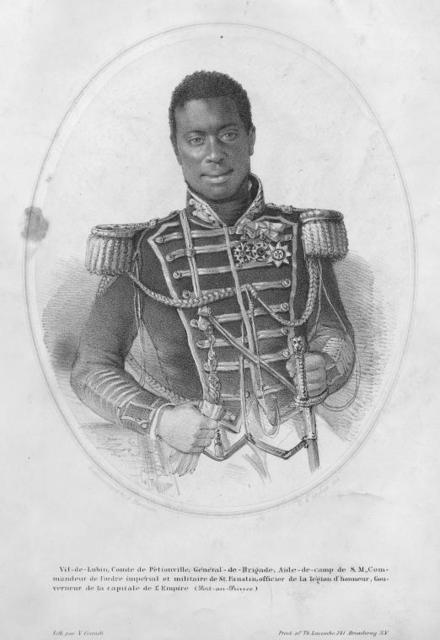
Philippe Guerrier
Philippe Guerrier was the unlikely leader chosen by the mulatto elite. He was selected to pander to black disgruntlement in the north and south. He was a plantation owner who cared more about his land then power. However, when Boyer died unexpectedly on July 6, 1825, by a horseback riding accident he was selected by the elite. The nation of Haiti needed a new ruler. There was a peasant insurrection in the south led by the insurgent Accau. And there was grumbling in East Haiti. So on July 11th Phillippe Guerrier was selected as the new president of Haiti. And the first order of business was the negotiations with France. Guerrier first encounter with the French envoy was an intense one. The French envoy told Guerrier that King Charles “demanded” that Haiti accepts the agreement that Boyer was close to agreeing to. The agreement was the payment of 150 million francs. Guerrier told the envoy that is impossible for the island to agree to. The envoy threatened him that there are 14 warships and 500 guns that will bombard Port Au Prince to ash and rubble if the government disagree with the agreement. Guerrier angrily said, “We defeated you once and we will do it again but this time there will be no French soldier left in Haiti!” Negotiations immediately ended for that day. The next day Guerrier declared that Haiti will not agree to this and that demanded the French fleet to leave the Port Au Prince bay. Guerrier was a career officer. He fought alongside Henri Christophe and was well learned in military history and tactics. He knew how to read and write since he was part of Henri Christophe royal family. He knew that war was near. He ordered an evacuation of Port Au Prince and moved the capital to Marchand in the interior of the island. However, it was too late. The bombardment began at the peak of the evacuation. In early July 15th, French guns bombarded Port Au Prince into rubble. It was estimated 8,000 people died that day. In Haitian history, it is known as the Massacre of port Au Prince. Large sections of the city laid in ruin. Guerrier survived along with his Cabinet and the mulatto elite. The entire Haitian government moved into Marchand to make war plans. Guerrier studied the French revolutionary wars and the Peninsular war. He knew that to defeat a second French invasion the entire nation must put everything on the line. So on July 17th, 1825 he called for a levee en masse. Every able bodies male was to take arms across the island to fight the French invasion. The bombardment of Port Au Prince shocked many at the brutality of the French. It enraged black Haitians. It horrified mulattoes at brutality the French were willing to go to retake the island. Also, the casualties consisted of many mulattos. And when word spread that the French were back to re-enslaving the black Haitians it caused a wave of hysteria in the nation.

Claude-Victor Perrin
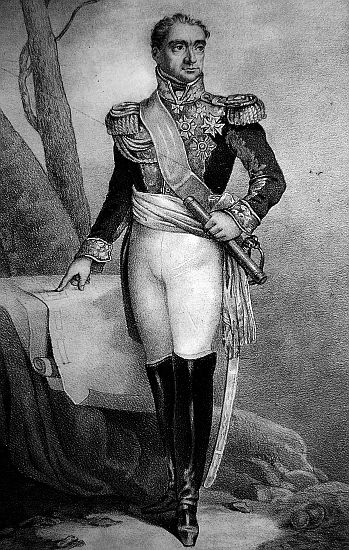
Auguste Marmont

France landed troops in Port Au Prince on July 18. It was a force of 50,000 troops led by the Napoleonic war general Claude-Victor Perrin. Charles X of France told Perrin that if negotiations fail bombard Port Au Prince and launch an invasion into the island. Also, he said to send correspondence to the Spanish East that they would receive autonomy if they pledge allegiance to France. Perrin took Port Au Prince with little resistance. Then he sent forces to take Leogane. Perrin's plan was to take the capital and hopefully force the Spanish to start a second front in the war. Perrins plan to take the coastal towns of southern Haiti to break the resistance. However, things did not go according to plan. On July 25 10,000 french troops engaged some Haitian soldiers outside Petit Gouve and defeated them easily. Perrin was accompanied by Auguste Marmont who wanted to prove his loyalty to the king since he defected from Napoleon and many did not trust him. However, he wanted to prove himself reliable.
Perrin decided to divide up the force of 50,000 into two forces. He wanted to march up north to defeat the resistance up north. Marmont would stay and pacify the south. Throughout of July, the Haitian military position in the south was nearing disaster. Marmont took over Petite Gouave Leogane and Miragoane. Guerrier gave a command to the south Accau, Jean-Louis Pierrot, and Charles Riviere-Herard. Accau commanded Les Cayes and since he was very popular with the peasant he could rally troops behind him. Guerrier also commanded that Haitian soldiers should retreat from the cities and towns to the mountains after the defeats in Mirogane. He followed the same military tactic that Dessalines, inToussaint and Christophe followed the 20 years prior. Marmont was ruthless. He was on warpath to prove himself and was a virulent racist who saw blacks as inferior. He had his sights on the city of Cayes but the mountains of the south would become hell on earth for the French. Guerrier next plan was to bring the Spanish East and that meant major changes would have to be made. Major changes that would change the course of Hispanola.
To be continued.......
Last edited:
